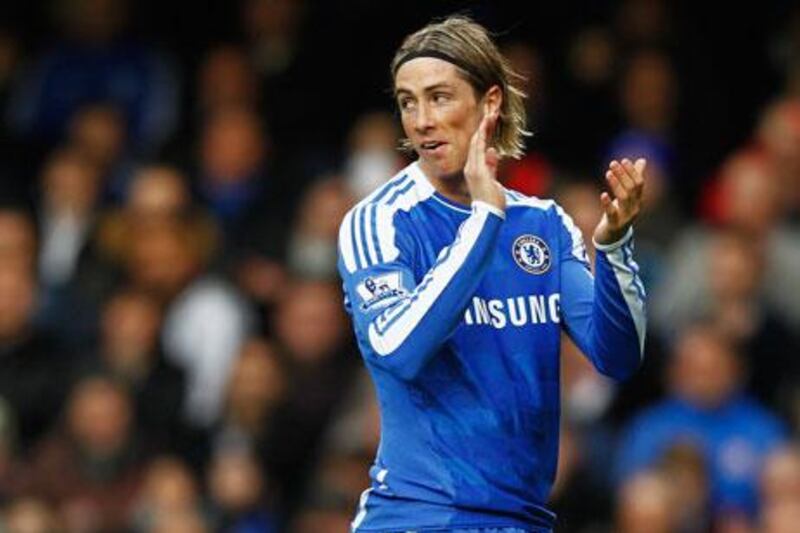January is always the quieter of the football year's two transfer windows, but as the shutters closed on the first of 2012's trading periods on Tuesday night, there seemed an eerie silence.
Carlos Tevez remained a Manchester City player, to the irritation of AC Milan, Paris Saint-Germain and Inter Milan, though none of those were ready to spend a headline-making fee to take advantage of the striker's unhappy situation at City.
In other years, perhaps they would have done. But besides the chatter of agents' propaganda, buzzing mobile phones, noisy, media-fed auctioneering and downright lies that typically accompany the business of player transfers, another sound was intruding into the offices of the buyers and wage payers of European football. It was the drumbeat of threats from Uefa against anybody preparing for extravagance.
European Football's governing body had carefully chosen a date a week before the closing of the transfer window to make public, in some detail, the format and the intentions of their Financial Fair Play (FFP) policies, which will oblige clubs seeking to participate in their tournaments - notably the Champions League and the Europa League - to have met criteria related to economic performance by the 2014/15 campaign.
Those who do not so could be excluded. Uefa have made it clear that they intend to address robustly the widespread doubts that had been nourished among clubs that the FFP regulations and the punishments would carry legal validity.
"We expect some clubs to try and take us to court," said Michel Platini, the Uefa president, daring them to try.
The top end of European football has been overspending, behaving as many apparently booming industries were doing until the global economic crash of 2008, borrowing heavily, building up debt.
By the end of the 2009/10 financial year, according to information passed to Uefa from the audits of over 650 clubs from 53 nations, the combined debts of its leading clubs stood at €8.4 billion (Dh40.6bn).
Indications were that the number would grow before it stabilises or reduces. "Our analysis indicates that 53 per cent of clubs had their balance sheet position deteriorate during 2009," report Uefa, "which is a negative trend compared to the 44 per cent in the previous year. In total only 29 per cent of clubs reported a profit and improved positive equity."
The principal area of overspending is player salaries, but transfer fees play a big part, too, and Uefa will have been encouraged by the year-on-year evidence of the last 13 months that elite clubs are learning how to act with greater restraint, despite the pressures of competitive domestic leagues and the urgent desire to get into European competition in the season ahead.
In England, the difference between the 2011 and 2012 winter transfer windows is startling. A year ago, five players alone had moved into new Premier League clubs for combined sums of over £160 million (Dh931.5m). This January, the top five most expensive players in the Premier League window cost under £30m between them.
On the continent, PSG, now Qatari-owned, flexed their new-found financial muscle, just as they had by paying over €42m to Palermo for Javier Pastore last summer, setting a rare French benchmark for the rest of Europe.
Nobody on the continent spent more in January on a player than PSG did in hiring Thiago Motta, the Italian-Brazilian midfielder, from Inter Milan. Indeed, the combined output of all the Spanish Primera Liga clubs amounted to as much, €10m, the same as Motta's fee.
In southern Europe, it is harder for football executives to cocoon themselves from the broader landscape in which their business exists.
The Greek, Portuguese, Italian and Spanish governments are battling recession. Reduced consumer spending power is being reflected in lower match attendances over the past three years. Money is harder to borrow from banks.
A lack of fluidity partly explains the preference of clubs like AC Milan to arrange so many of their deals on the basis of loans, with an option to buy. Zlatan Ibrahimovic, Serie A's leading goalscorer, initially came to them that way; Maxi Lopez, signed last week, is on loan from Catania.
Uefa want to set clubs a break-even target through their FFP regulations. Clubs will be monitored annually and if they show symptoms of falling beneath the requirements for tackling debt and reducing losses, they will be vulnerable to a number of penalties, from points deductions, bans on signing and registering new players to, ultimately, suspension from competitions.
There is little desire within Uefa to stage a Champions League without a major, glamour club involved because it has strayed financially.
But the body is serious about its guidelines and has recently invited clubs to measure their current situations against them.
There is clearly work to be done, because, based on the audits for the 2009 financial year, 60 per cent of clubs who took, or are still taking, part in the 2011/12 Champions League or Europa League would trigger an alarm set by Uefa's monitoring criteria. They would then be required to present, at the very least, explanations of how they intend to go about balancing their books and show how they can show losses of no more than €30m by 2015.
"Keeping costs under control and within sustainable limits is the biggest challenge facing clubs now and in the future," Platini told club executives last week. "The Financial Fair Play Philosophy is about balancing revenues with expenditure."
That, he added, was the only way to guarantee "the whole football sector is sustainable and to promote investment in its future".






